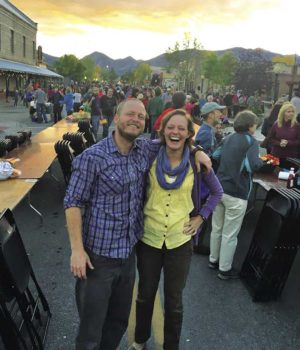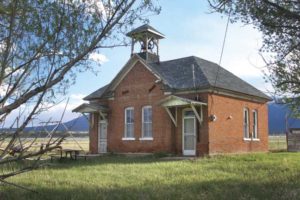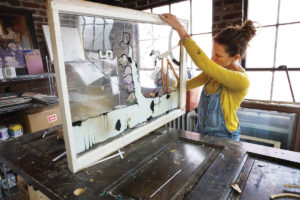By John Mattingly
The months of March, April and May are the windy period in the Valley. Wind often determines what can or must be done. A big wind can quickly dry out or blow out a crop, make construction impossible or repairs necessary, damage fences freeing livestock, and generally make misery on an otherwise beautiful day.
Like its namesake, wind is a versatile word. It can serve as several parts of speech: noun, verb and adjective. Wind is a major element: earth, wind and fire, and may the wind be at your back. Someone who is windy either exaggerates or lies, depending on the force of the wind. Passing gas is “emitting wind from the anus.” Newcomers and politicians think they can make the wind blow backwards.
Insurance claims sometimes depend on parsing the damage from wind and the damage from water, a legal distinction that claims wind and water are separate legal entities. When riding a bike, it is common for the wind to be in your face whichever direction you travel. Wind powered the sails of early human exploration, trade and travel. Fire depended on wind to enable slash-and-burn agriculture and hunter-gatherer fires to funnel game. Wind now contributes to our electrical grid. Wind distributes minerals around the Earth in dust storms.
[InContentAdTwo] Wind, the noun, is proof that Earth is constantly seeking, but seldom reaching, equilibrium. Wind moves parcels of air between pressure gradients, from high to low. If the wind failed to blow, it would be problematic for creatures on Earth. All would either freeze or burn to death because the Earth would not be spinning and variable heating of the Earth’s surface would have stopped.
We need wind. One seldom-acknowledged benefit of the wind is the way it moves phosphorous around the planet, picking up soil particles and fossils (as in the Sahara where ancient braciopods are picked up and blown to South American to fertilize jungles.) Phosphorus is the chemical driver of photosynthesis. Diminished plant growth would cut off much of the planetary food web.
But knowing the wind is essential to life – as much or more than water – offers little comfort when the wind comes at you the wrong way. When I first started farming, I was deeply impressed when the wind blew a neighbor’s boat into my fledgling alfalfa field. The neighbor showed me where the boat had sat when it took off. Nearby stood two empty garbage cans that didn’t move at all, giving rise to my theory – and I don’t think I am alone on this – that wind is capable of expressing intent.
Over the years, this theory has been demonstrated many, many times. I have seen the wind blow itself into a small twister and head straight for a field of windrowed hay or beans, and blow a good bit of the crop against the nearest fence where, tangled with barbed wire, it is unharvestable.
How can one dispute the intent of a wind that blows enough dirt to cover a fence, on a field grazing livestock, which, due to their extra-sensory fencebreak perception, immediately exit and, bewildered by the wind, make a beeline for the nearest highway.
I have seen the wind come out of nowhere and head straight for a big stack of sheet-foam insulation moments after the straps were removed, and take the entire pile airborne, twirling them like fat batons before breaking them into peculiar triangles.
Almost everyone has a story that casts the wind as a leading character. We call them dust devils for a reason: they are little devils. Though we are generally removed from tornadoes in Central Colorado, we all know what they can do to trailer parks, trees and how they figure prominently with the Wizard of Oz. Hurricanes and wild weather have given us a multitude of extraordinary stories.
One of my rare enjoyable wind stories happened during a walk in downtown Denver when I turned onto Broadway just in time to see a magical wind lift a fleet of newspaper pages into the vacuum between tall buildings on 17th Street. A few people looked up at the sight, eventually prompting nearly everyone on the sidewalk to stop and watch. The pages danced in freeform patterns, touching, eclipsing and overlapping such that it was difficult to tell if the wind was moving the pages or the pages moving the wind.
Someone had to say, “That’s freedom of the press.”
John Mattingly cultivates prose, among other things, and was most recently seen near Moffat.




